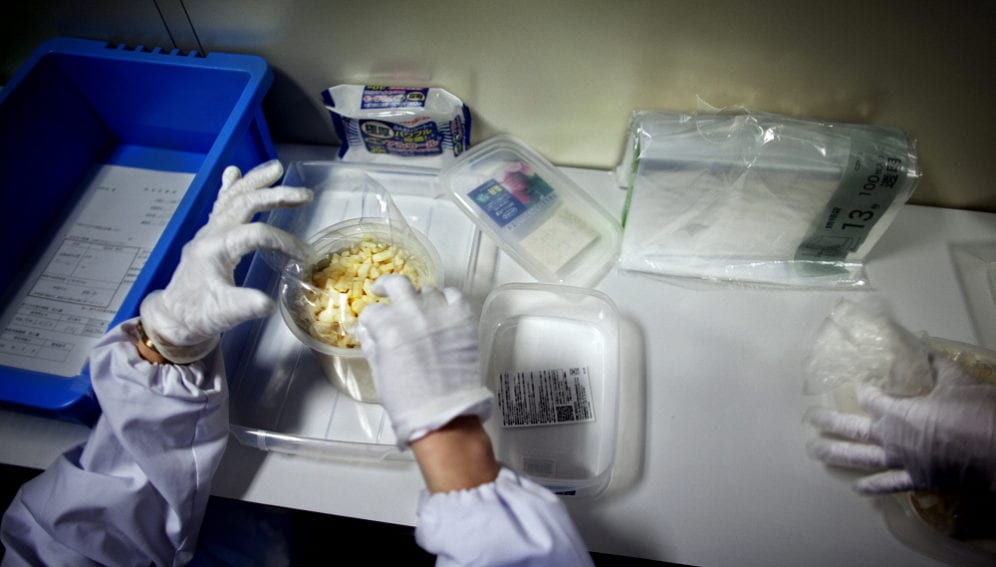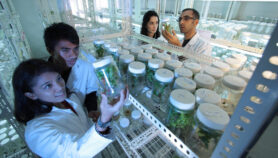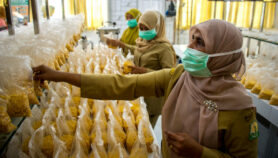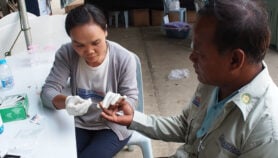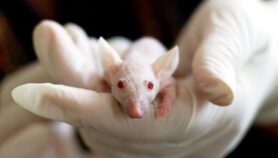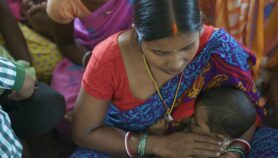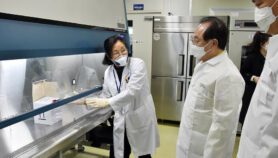By: Crispin Maslog
Send to a friend
The details you provide on this page will not be used to send unsolicited email, and will not be sold to a 3rd party. See privacy policy.
Is science fraud on the rise in the Asia-Pacific region and what can be done about the problem?
I refer mainly to scientists faking research results, publishing them as factual in science journals and manufacturing endorsements for themselves and their papers.
The most recent case involved Anoop Shanker, a former National University of Singapore (NUS) epidemiologist and assistant professor at the NUS Yong Loo Lin School of Medicine (2005-2008) who had migrated to the United States in 2012. He was accused and found guilty last September of falsifying data in his papers on diabetes and puffing up his resumé. [1]
Earlier, in July 2014, the RIKEN Center for Developmental Biology in Kobe, Japan, found stem cell scientist Haruko Obokata guilty of “scientific misconduct” for manipulating data “in an intentionally misleading fashion” in her paper published in the journal Nature about stimulus-triggered activation of pluripotency in stem cells.
The committee cleared three of Okabata’s co-authors of involvement but were held responsible for failure to check the data. One co-author, RIKEN Center deputy director Yoshiki Sasai, was found dead the following month, apparently from suicide by hanging at the laboratory complex where he worked. [2]
In another case, Peter Chen, a scientist at the National Pingtung University of Education in Taiwan, manufactured up to 130 fake email accounts posing as reviewers for his own papers in the Journal of Vibration and Control. [3]
Also in July this year, three papers in India published in PLOS One, with Fazlurrahman Khan as the lead author and Swaranjit Singh Cameotra as the second author, were retracted on 9 July 2014 because of fabricated data. [3]
Science fraud rising?
All these science fraud cases occurred in 2014 but might just be the tip of the iceberg.
One study in 2012 co-authored by University of Washington professor Ferric Fang found that the number of biomedical and life science papers retracted for fraud since 1975 has increased ten times. [4]
Retraction Watch, a website tracking academic retractions worldwide, says it used to track one or two retractions every few years, but now the average is two to three retraction postings a day.
It is interesting to note, however, that only one recent case of science fraud has been reported in the ASEAN region. This occurred in Singapore, the most developed country with the most developed science sector in the region. My take is that cases of science fraud seem rare in ASEAN due to a cultural factor — South-East Asians are generally non-confrontational.
A top Philippine scientist, Emil Javier, a plant breeder and former science minister, says he is “not aware of instances of fraud in the Philippines’ science community.” This could mean there are no cases exposed yet because of the Asian culture of letting sleeping dogs lie.
Publish or perish syndrome
What made these scientists cheat, all respected professionals who should have been models of ethical behaviour to their students and colleagues?
The basic reason, apparently, is the “publish or perish” syndrome in academic and science circles.
Publications are given high value in the academic world, whether in the Asia-Pacific or in the West. They are the key to promotion — and just as importantly, provide funding for more research.
In the state-run University of the Philippines, for example, faculty members are given cash incentives of US$2,500 per paper published in a refereed journal abroad.
In many places in Asia, scientists need to publish three papers in respected journals before they can complete a PhD. So some researchers find it harder to cope and easier to cheat.
But money for science research has gone down, leading to a highly competitive environment for academic research and funding. One study says that while about 60 per cent of grant proposals got approved in the 1970s, this has gone down to 10 per cent today.
The study noted that “because pressure to get funding is greatest in the currently trendy field of biomedical and life sciences, that is where most of the fraud tends to turn up”. [4]
Change the culture in academia
It is about time that the current “publish or perish” culture in academia is changed to relieve scientists of pressure to publish more papers.
Pichet Durongkaveroj, Thailand’s current minister for science and technology, said the academic community must be flexible enough to count unpublished papers that are beneficial to society and needs of the local community and the region as a whole in promotional schemes.
I fully agree that there must be other ways of recognising the achievements of scientists other than just the number of papers. Why not consider the impact of their research on society, or on the building of theory, not to mention the prestigious awards received? The number of papers published should not matter under this scenario.
Let governments and foundations also first decide what fields of science they think are needed to improve society at a given time and let that determine the amount of funding.
Funding agencies can design a non-competitive system of allocating funds, instead of focusing on publications of researchers.
The professional self-regulation processes must be strengthened, starting with stricter ethical requirements and imposing heavy penalties for cheating in addition to simple retractions. Right now, there does not appear to be a systematic way of dealing with cheaters in science.
The peer review process itself must be reviewed and made more stringent and transparent.
In the ideal peer review process, the journal picks experts who remain anonymous when reviewing papers. But in some cases, the paper’s author is asked to suggest reviewers. That’s what happened in Chen’s case — he made himself the reviewer of his own papers by faking their email addresses.
One final thing: there is need for established scientists to nurture their students. But it seems teaching has become a nuisance for many professors, who spend most of their time flying from one conference to another.
Scientists must be exemplars and find time to teach their students, especially about ethics in science. Come to think of it, this might be one critical criterion for allocating funds — the number of disciples a scientist can produce.
Crispin Maslog is a Manila-based consultant for the Asian Institute of Journalism and Communication and an environmental activist. A former journalist and professor, he worked for the Press Foundation of Asia and the International Rice Research Institute.
This article has been produced by SciDev.Net's South-East Asia & Pacific desk.
References
[1] Melissa Sim Ex-NUS professor in resume fraud scandal in US (The Straits Times 12 September 2014)
[2] Rebecca Tan Fighting back against research fraud (Asian Scientist, 8 August 2014)
[3] Jonathan Soble Author of disputed stem cell paper found dead (Financial Times, 5 August 2014)
[4] Jeremy Au Yong Number of academic fraud cases on the rise (The Straits Times, 24 September 2014)


